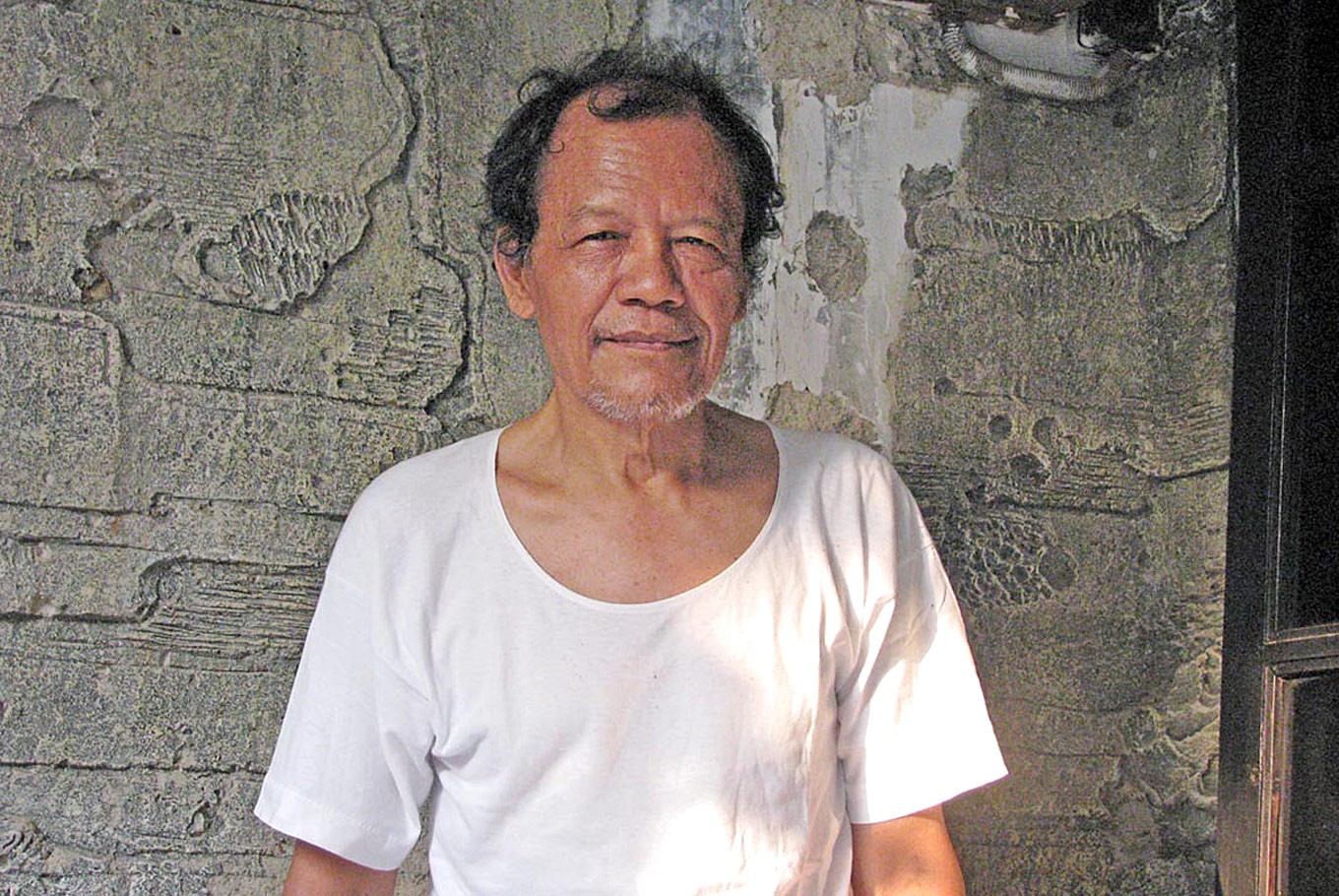Obituary: Literary scene mourns the death of Hamsad Rangkuti
Indonesia’s literary scene has suffered a great loss with the death of illustrious short story writer Hamsad Rangkuti on Sunday.
Change text size
Gift Premium Articles
to Anyone
 Author Hamsad Rangkuti (JP/Ary Hermawan)
Author Hamsad Rangkuti (JP/Ary Hermawan)
Indonesia’s literary scene has suffered a great loss with the death of illustrious short story writer Hamsad Rangkuti on Sunday.
Hamsad died at home aged 75 after being in a coma for three months. He had multiple health problems and suffered a stroke last year. His widow, Nur Windasari, confirmed the news of his death. The late author was buried in Beji cemetery, Depok, West Java, the same day.
Poet Sapardi Djoko Damono remembered Hamsad for his interest in marginalized communities through a viewpoint that he considered to be unusual.
“[Hamsad] humanized these marginalized people through humor, and reading his works is interesting because he was also straightforward in his delivery,” Sapardi told The Jakarta Post on Monday.
He noted that Hamsad’s stories were easy to read and it appealed to a wide audience. “His observations of marginalized people were also spot-on, because he shone a spotlight on issues affecting them.”
Born in Titikuning, North Sumatra, in 1943, Hamsad wrote his first short story,Sebuah Nyanyian di Rambung Tua (A Song in an Old Rubber Tree), at the age of 16.
The author, who was perhaps best known for his short story Maukah Kamu Menghapus Bekas Bibirnya di Bibirku Dengan Bibirmu? (Would You Erase the Trace of His Lips on My Lips with Your Lips?), was known for daydreaming and fantasy, the traits that propelled him to literary stardom, even though his friends used to mock him for mixing reality and fantasy.
“In order for people to like your story, you must add a lie to it. This is not a crime. It is beauty. A beautiful lie. Many writers hate this term for it makes literature sound like a crime, and therefore they prefer calling it imagination,” Hamsad told the Post in an interview in 2008.
Hamsad’s imagination landed him numerous awards, including the 2003 Khatulistiwa Literary Award for his short story collection Bibir Dalam Pispot (Lips on the Chamber Pot) as well as the 2008 Southeast Asian Writers Award.
Another notable short story, Panggilan Rasul (The Calling of the Apostle), which was originally sent by Hamsad to the Jakarta-based literary magazineSastra, went unpublished due to the publication being shut down by then-president Sukarno because of its support for the banned Cultural Manifesto.
The manifesto attacked the artistic restrictions imposed by Sukarno who favored leftist intellectuals in Lekra (The Institute of People’s Culture), which was affiliated with the now defunct Indonesian Communist Party.
The short story was later sent by HB Jassin, an icon in Indonesian literature, to literary magazine Horison, where it was published in the magazine’s fourth edition. This was a turning point for Hamsad who decided to stay on in Jakarta.
He spent some time in Jakarta’s underbelly, where he interacted with people on the streets.
His observations can be seen in one of his best works, Ketika Lampu Berwarna Merah (When the Light Turns Red), which depicts the life of beggars and prostitutes living next to the railroad near the Ciliwung River.
The idea to write his award-winning Pispot came to him after overhearing a woman telling fellow passengers in a public minivan about a robbery.
In Pispot, Hamsad tells of an alleged robber who was arrested by the police. He was believed to have swallowed a stolen necklace and was forced to take laxatives but the police could not find any evidence in the chamber pot even after he had relieved himself three times.
The narrator, who had accused the man, felt bad and apologized to the alleged robber and took him to his home, but on the way the man confessed that he had indeed taken the necklace because his child was seriously ill. The jewelry was not found in the chamber pot because every time it came out, the man swallowed it again.
“I think the reason why the stories in Bibir Dalam Pispot are timeless is because they tell of the suffering of the poor, which is still a fact of life in Jakarta,” Hamsad told the Post.
On Monday, comic expert and pop culture observer Hikmat Darmawan remembered Hamsad as a literary figure who “narrated Indonesia through the small mosaics of its people in their day-to-day lives”.
“These mosaics are indeed very valuable, because they are close to the lives of many in Indonesia.”
Hikmat said Hamsad’s most noteworthy legacy was his time as the editor of Horison during the 1980s and 1990s, taking up the mantle of editor-in-chief in 1986 and leaving the post in 2002.
“His painstaking work has contributed a lot to the diversity of Indonesian literature. In an era of lightning-fast media, Hamsad’s tenacity is needed, at least in spirit, so that Indonesian literature will not be consumed by instant popularity and a culture of packaging with no substance,” Hikmat added.
Hamsad’s affinity for storytelling lives on. As he once said during an interview: “I still want to write stories that are lasting. I don’t want to write clichéd stories. Young writers should know this as well. You’ve got to have a story to write, you can’t just play with words.”
We are no longer accepting short story submissions for both online and print editions. New submissions to shortstory@thejakartapost.com will not be published.









